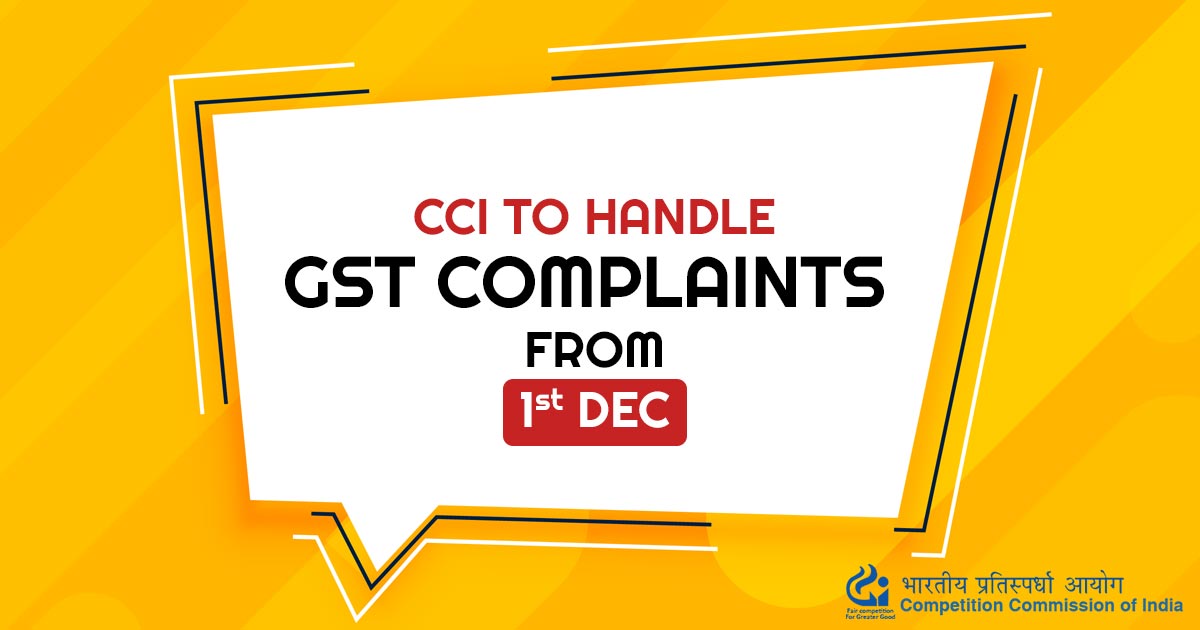
National antitrust watchdog Competition Commission of India (CCI) from December 1 shall manage complaints with regard to profiteering under goods and services tax (GST) in place of the National Anti-Profiteering Authority (NAA), an official notification.
In November 2017 NAA has been set up to verify the illegal profiteering through the enrolled suppliers under the GST law to secure the customers. The same was set for 2 years till 2019. Post to that the same time duration was extended to 2 years till November and the same was again done by the next year. The time duration of NAA would get finished this month.
The GST Council on extending NAAs time duration till 30th Nov 2022 in its 45th meet held in September former year, would have decided to transfer its operation to CCI. The CCI would develop a separate wing to manage the complaints concerned to GST profiteering.
A three-tier structure was made to investigate and adjudicate the profiteering complaints Under the GST law. Inside the complaints a state-level screening committee glimpsed and when the same would get satisfied forwarded them to Director General Anti-Profiteering (DGAP) for investigation. DGAP furnished the investigation report to National Anti-Profiteering Authority(NAA), which issues an order after hearing both parties.
If anyone revealed engagement in the profiteering need to return the profiteered amount including the interest of 18% to the consumer. When all the consumers could not be revealed the amount then would get transferred to the consumer welfare fund.
The Central Board of Indirect Taxes and Customs (CBIC) mentioned that “The central government, on the recommendations of the GST Council, hereby empowers the CCI to examine whether input tax credits availed by any registered person or the reduction in the tax rate have actually resulted in a commensurate reduction in the price of the goods or services or both supplied by him,”
Tax experts would see some of the guidelines to help in finding out the profiteering or “Ideally, market forces should determine pricing and recourse to CCI should be made only in very exceptional cases,” he mentioned.









